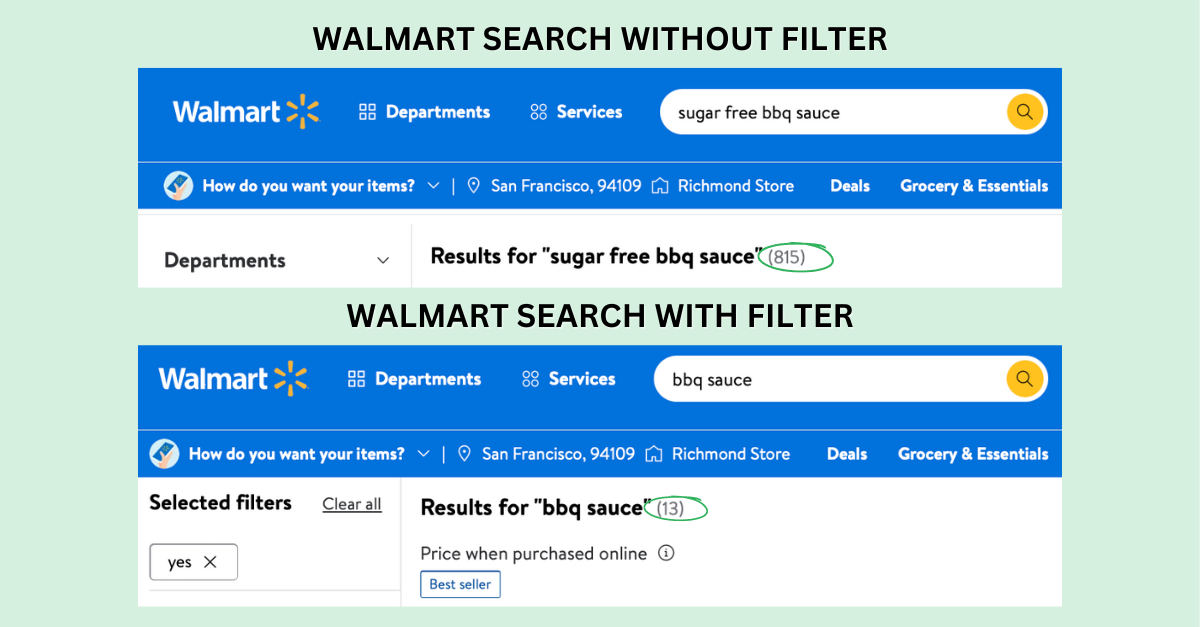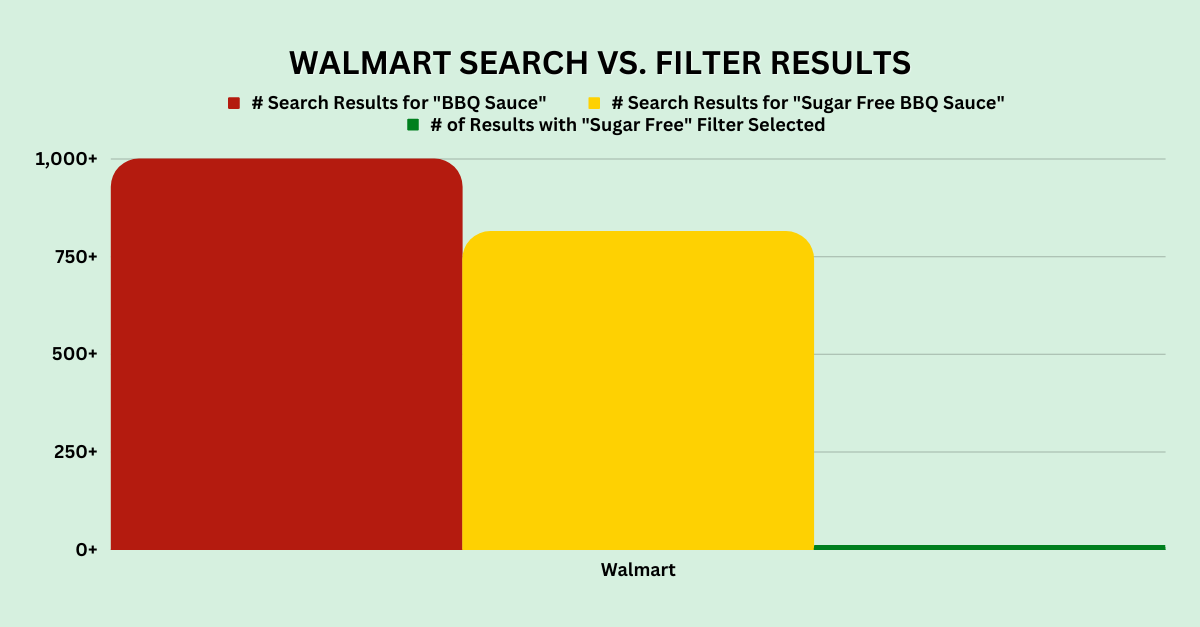The Issue
It’s easy for smaller CPG food brands to get lost in a pool of thousands of results in the competitive world of e-commerce. To help brands connect with their target shoppers, major grocery retailer e-commerce sites offer search and filter features. These features are meant to customize the shopping experience, though the accuracy of results can vary significantly.
However, small and midsize enterprise (SME) brands have a unique opportunity with these features. This opportunity doesn’t require a brand to increase its ad spend or sponsor product results. By leveraging the power of product data and attribution, brands can use filters to increase their visibility and drive sales.
In this blog post, we will conduct an e-commerce discovery audit for a consumer shopping for a sugar-free BBQ sauce. This audit will show how optimizing product data for filters can give SME brands a competitive edge.
The Search for Sugar-Free BBQ Sauce
Meet Connie Condiment, a health-conscious shopper preparing for her upcoming summer BBQ. She is adamant about finding a sugar free BBQ sauce that aligns with her dietary preferences. According to FDA standards, a product is qualified as sugar free if it contains less than 0.5 grams of total sugar.
Connie decides to order her groceries online from Walmart to save time. She starts by typing “BBQ sauce” into the search bar, but the overwhelming 1,000+ results make it challenging for her to find what she needs. Despite narrowing her search with “sugar free BBQ sauce,” she is still presented with 815 options. Frustrated, she decides to use the sugar-free filter, which yields a much more realistic 13 results. Most of these products meet her criteria, but a few inaccuracies slip through.

Of all the BBQ sauces in EatQ’s product database, 8% qualify for a sugar free claim. Proportionally, Walmart should populate approximately 80 sugar free BBQ sauces when the filter is used. We know from a manual audit that Connie’s original search with 815 results is oversaturated with products that do not meet her criteria. The 13 results Connie received when the filter was used likely mean that dozens of brands have a discovery gap. These brands have products that qualify as sugar free but have not optimized their product attributes to populate with the appropriate filters.

The Power of Product Attribution in Online Grocery Retail
As we’ve demonstrated in the past, filters are a largely overlooked solution for CPG food brands. Brands typically spend thousands of dollars on sponsored product ads in an attempt to stand out from the thousands of other products in their category. This is unrealistic for smaller, emerging brands, but even for more established brands, it remains a question of ROI.
Before blowing your marketing budget on AdSpend, explore the power of product data and attribution. This targeted approach can significantly improve the chances of SME brands gaining visibility and attracting their ideal customers.
Investing in optimizing product data and ensuring accurate attribution makes your products more likely to appear in relevant filter-driven searches. This increases the chances of being discovered by interested shoppers like Connie.
The Solution
Connie Condiment’s search journey exemplifies how e-commerce filter features impact discoverability, making it essential for brands of all sizes to focus on accurate product attribution.
By fine-tuning product data for filters, SME brands can reach their target audiences, reduce reliance on sponsored ads, and build customer trust through accurate product claims and attribution. This strategic approach ensures that products are easily discoverable by customers with specific dietary needs or preferences, like Connie, resulting in increased conversions and brand loyalty.
Is your brand maximizing the impact of product attribution?
Discover now by creating a free EatQ account!
About EatQ
EatQ is a leading product data platform that specializes in helping small, health, and sustainability-focused brands differentiate themselves in online grocery retail. The EatQ platform provides affordable pre-sales planning, marketing, and research tools including Competitor Comparison and Claim Finder features.



